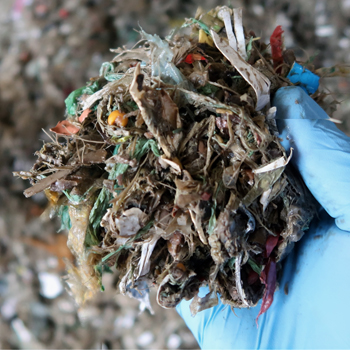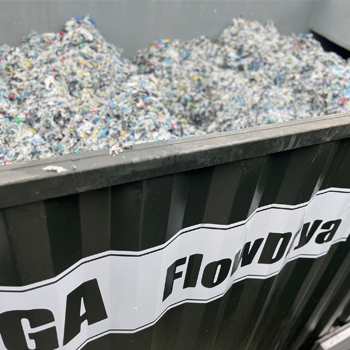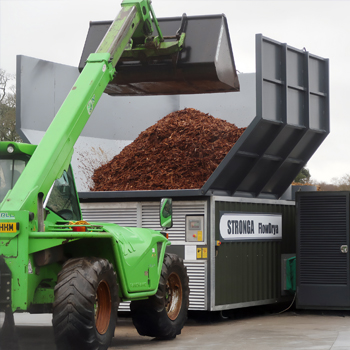Stronga recently engaged in positive discussions with a highly-reputable microgreens grower who was seeking to overcome the ‘monster’ of needless waste in their existing approach. Stronga recommended our compact SpiroSteama equipment for the client’s needs; a steam heat-treatment solution that would allow the grower to reuse their existing peat substrate, multiple times over.
Stronga help each customer do better in their own, individual context, whether that be farmers or microgreen growers. In this case, recycling and reusing available in-house peat resources was the optimal course of action for the business.

Growers Facing Growing Struggles
Growers are being faced with increasingly stringent regulations when it comes to peat usage. Extraction regulations, significantly higher transport costs and recent inflationary increases in the cost of virgin peat material have caused many growers to seek alternative growing substrates. The issue is that peat-free substrates are never as versatile or nutritious as peat-based products. After weighing up the potential of using a coco coir-based media, our client decided that recycling their large stockpile of one-time used peat blend, destined for disposal, was the best solution.
SpiroSteama equipment allows growers with built-up supplies of nutritious, valuable peat to regenerate it for reuse multiple times over. The benefits of steam recycling are clear; 1) less virgin peat extraction which creates GHG emissions and destroys carbon sinks, 2) recycling and recovering even more value out of spent peat stores and 3) increased profit possibilities from what is often considered a no-income waste product.
Microgreen growers have a shorter growing cycle than most, as little as 7 days in some cases, making the SpiroSteama an appropriate solution for smaller-scale operations. If virgin peat material was originally only being used once in a 7-day cycle and then disposed of wastefully – growers that bought single-use peat with high average import prices, could save significant amounts annually.

Steaming Peat In-House > Purchasing Virgin Substrate
There is no doubt that the production and cross-border transfer of peat is problematic. Diesel is used in harvesting and transporting peat to the packing house and carbon is used in the peat drying process. There are also significant costs associated with wrapping peat into bales and energy consumed in road transportation to the port; not to mention the oil used in shipping peat across sea and to the grower’s yard. These are hidden emissions; it is always difficult to calculate energy use, consumption and costs happening elsewhere. Importing virgin peat has become far less viable as an option, enhanced by the pressure to reduce carbon use and provide qualified data to customers.
While Stronga’s heat treatment solutions do use some electricity, diesel, gas and kerosene, the efficiency of the SteamBoila and SpiroSteama, coupled with the light density of peat, make the steaming process highly economic. When the ‘real’ amount of carbon in imported growing material was calculated, it was clear that steaming the grower’s own waste material was the significantly better option.

Alleviating Concerns About Reusing Peat
As an added concern for professional crop growers, they are also under immense pressure to maintain reputations by upholding strict food safety requirements. SpiroSteama uses 200’C super-heated steam to ensure substrates are fully sterilised prior to further crop propagation and growth. By removing the requirement for chemical sterilisers, which leave behind harmful residues, SpiroSteama gives grower’s complete control of their peat recycling, removing any concerns over material provenance and disease-ridden imported material.
This grower’s new steam heat treatment process allows for greater adherence to food safety rules, limiting the risks associated with fungal diseases common to microgreens.

Local Standards for Pasteurisation
Stronga’s team work together with edible crop growers to consider local food safety requirements; rules are not always clearly set out and can vary from region to region. In our view, it is always better if the grower recycles their own media to avoid the risks of contamination from unknown sources of imported material. We see this as reducing risk and increasing food security standards.
Outside of the food chain, growers of cut flowers and container grown plants are also able to reduce waste and follow relevant standards through steam heat treatment.

Retaining Vital Nutrients
A key benefit of the SpiroSteama steam-heating process is that all nutrients, including PH balancing elements that are added to the virgin peat or coir material, are retained and therefore immediately available to the next batch of crops grown. This particular grower did not need to add supplementary fertiliser and nutrients to the crop following the steaming process, saving time and money, although this was not the principle economic benefit of steaming the peat blend.

Misconception Dispelled:
A common misconception of steam heat treatment is that some steam is wasted during the pasteurisation process, and thus the process is not wholly energy-efficient. In reality, steaming waste material is highly efficient and cost-effective, giving microgreen growers complete, in-house control over their chosen substrate. The amount of steam needed depends on the material used and various other factors; the steam boiler automatically modulates down when the plenum cannot accept any more steam. What’s more, constant agitation of material in the SpiroSteama, together with easy incline adjustment and auger speed control, enables reliable, energy-efficient steam pasteurisation.

A Helping Hand from Nature
Before steam heat treatment, nature lends a helping hand to reduce the amount of energy and kilos of steam required. Thermophilic activity in heaps of used growing media naturally raises the temperature of the input peat blend to temperatures of around 25-50̊C (77- 122̊F). Even in cold winter conditions, thermophilic activity maintains the temperature of the input material, keeping it significantly warmer than the ambient reading. This all contributes towards excellent energy efficiency in peat pasteurisation work.

What Happens to Roots & Stems from Previously Grown Microgreens?
In the SpiroSteama’s super-heated steam plenum, steam makes contact with the dense root ball which has permeated through the peat material in the tray. These delicate root structures, soft and pliable root cells full of moisture are heated instantly in contact with the 200̊C steam. Cells explode and the original white colour of the roots and soft stems changes to a darker colour. The nutrients contained in the root hairs are released for use in the next crop in hygienic conditions.

Evidencing Steam Sterilisation, Accurately
A key benefit of SpiroSteama equipment is that it features a useful material temperature sensor to monitor material temperature profile in the steam plenum. Microgreen growers consider this a hugely important feature in order to evidence diligence in respect of hygeinisation and pasteurisation for the next growing cycle. In the case of the FlowSteama, Stronga’s larger-scale heat treatment plant, data logging profiles can be downloaded via an excel spreadsheet and also viewed in real time, all leading to better outcomes with evidence of adequate pasteurisation.

Ask Stronga; Your Trusted ‘Clean-Steam’ Partner
Stronga work closely with growers to identify capital costs of the equipment together with the overheads - electricity usage, fuel costs and the (negligible) labour requirement for the SpiroSteama. By optimising the equipment, overall cost savings through heat-treating growing media for microgreen growers are clear.
Small-scale trials indicated the effects of first- and second-time steaming, as well as testing mixing different %’s of coco coir and other constituent parts into the blend, which improve the structure of the blend for optimal root penetration and moisture retention. The microbiological effects of media reused following heat treatment indicate a strong proof of concept.

Grant Funding, Available for You?
In many countries, there are ‘low-carbon’ grants and organisations that support growers in improving their technology, especially in the areas targeting reduced energy consumption and carbon emissions. Governmental and regional grants are available to subsidise and reduce the capital cost of certain equipment. These grants offer significant incentives to rethink your process machinery, resources and energy usage.
Many of our customers have been successful in their applications for grant funding. Stronga recommend that growers research the potentially highly useful options relevant to their business and refer to your local advisers for more information.

Realising the Hidden Value
At Stronga, our team enjoy collaborating on projects where they can add significant value. In this case, with the client having a substantial, existing heap of material, we worked together with them to identify the significant value, hiding in plain sight. The heap was measured in cubic meters and a value was placed on the stockpile. After heat treatment, a large quantity of the media is now reused on-site with some material sold at high prices as a wonderful, clean, peat compost with certificated phytosanitation, to other growers. Using SpiroSteama equipment, the grower gained a significant economic opportunity.

Consider the Effect of Change, with Stronga
Stronga work closely with head growers and technical ergonomists who support clients in their modern horticultural processes. The growers we work with are often generational, long-established family businesses rightly concerned with process change. Many clients want to make an informed comparison between their existing process and a process which includes heat treatment of spent growing media. The team here at Stronga support them in thoughtfully considering the effects of change to their operations, alleviating any concerns or questions they may have.
If you want to achieve overall reduced input costs, increased profitability, lower carbon use, lower energy use and improved cropping yield, making your business more resilient in tough economic situations, contact Stronga. We look forward to hearing from you - info@stronga.co.uk.



Share this post